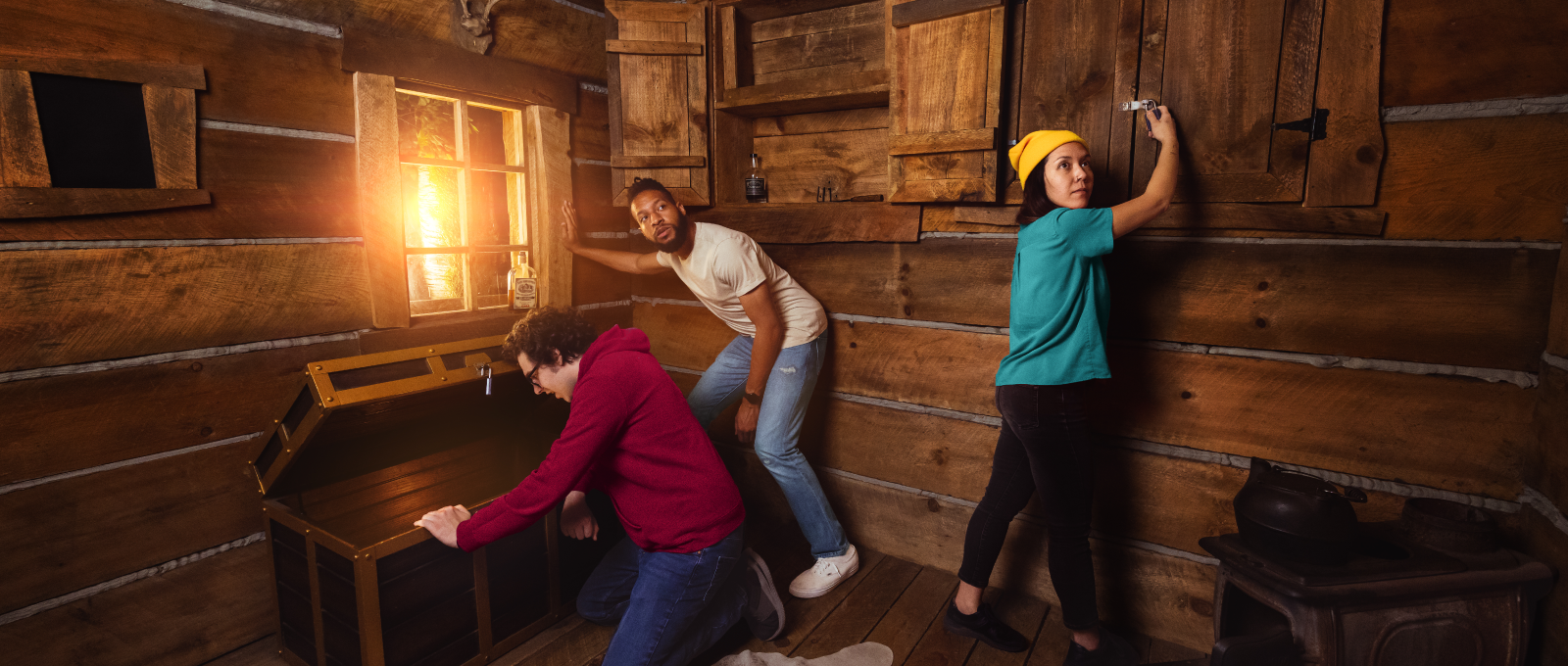Group Approaches: Just How to Team up Effectively in a Retreat Area
Browsing the intricacies of a getaway space necessitates more than plain excitement; it calls for a well-coordinated technique grounded in clear communication, strategic duty tasks, and skilled time administration. Teams must proactively pay attention to each participant's understandings, designate roles that line up with individual strengths, and preserve routine check-ins to ensure emphasis and stop redundancy. By promoting a setting that values communication and versatility, teams can considerably increase their effectiveness and success rates. The nuances of these techniques can transform the experience, but just how exactly can they be carried out to maximize the potential for success?
Establish Clear Communication

To facilitate clear communication, it is necessary to designate a central point of get in touch with for details dissemination. This role includes summing up findings and recommended techniques to ensure everybody continues to be on the same web page. Additionally, embracing a systematic technique to discussions can avoid disorderly exchanges. For circumstances, brief, focused updates from each group member can keep the team informed without frustrating them with details.

Designate Roles Strategically
While clear interaction sets the structure for efficient synergy, designating duties strategically ensures that each staff member's staminas are utilized successfully. In an escape space scenario, the time-sensitive and complicated nature of challenges demands a well-organized technique to job delegation. By determining and leveraging specific competencies, groups can optimize their analytic abilities and enhance general efficiency.
Somebody with an eager eye for information may stand out in finding concealed objects, while a logical thinker could be better suited to resolving puzzles. This role typically needs strong organizational and interpersonal skills.
2nd, guarantee that functions are adaptable and adaptable. As new difficulties emerge, the team has to have the ability to pivot, reapportioning jobs as needed. This versatility assists preserve energy and prevents traffic jams that can happen because of rigid role jobs.
Eventually, a calculated technique to function project not only makes best use of the staminas of each employee however also cultivates dig this a natural setting, driving the group in the direction of a successful escape.
Use Diverse Abilities
Recognizing and using the read varied skills within your group can considerably boost your performance in a retreat space. Each staff member brings one-of-a-kind toughness to the table, and successfully leveraging these capabilities can accelerate problem-solving and improve total effectiveness. For instance, a team participant with strong logical abilities might stand out at figuring out complicated codes or patterns, while an additional with keen empirical capacities may promptly spot concealed ideas that others may forget.
Urge group members to articulate their insights and ideas quickly, making certain that all possible options are taken into consideration. In addition, appointing jobs that line up with each member's strengths can prevent traffic jams and make certain that development is continuous.
In addition, variety in abilities commonly equates to diversity in thinking designs, which is vital in click here for more a getaway area setup. While some difficulties may call for rational reasoning and accuracy, others may gain from creative and association of ideas. By recognizing and leveraging this variety, teams can address a more comprehensive variety of challenges better, thereby enhancing their opportunities of a successful getaway.
Manage Time Efficiently

First, assign initial mins for a fast study of the space. Identify visible puzzles and divide jobs based upon staff member' toughness, making certain that no one is idle. Set interior time checkpoints to review progression occasionally; for circumstances, objective to have half the puzzles addressed by the mid-point of the video game. This practice can help maintain the team focused and protect against time from sliding away unnoticed.
In addition, avoid tunnel vision. If a problem is taking as well long, rotate staff member or relocate on to another difficulty, returning later with fresh perspectives. Interaction is vital-- keep everybody updated on fixed puzzles and staying jobs to prevent repetitive initiatives.
Lastly, use any tips or ideas sparingly yet strategically - best escape room. Understanding when to ask for assistance can save beneficial time. By adhering to these time administration concepts, teams can substantially boost their possibilities of an effective and enjoyable getaway area experience
Debrief and Reflect
Reflection is an important facet of group growth and improvement in the context of getaway areas. Once the difficulty is finished, whether successfully or not, it is vital for the group to participate in a structured debriefing session. This process enables group members to analyze their efficiency, recognize strengths, and pinpoint locations for renovation.
Start the debrief by reviewing what worked out. Highlight certain instances of effective communication, analytical, and cooperation. Identifying these favorable behaviors reinforces them and motivates their repeating in future obstacles.
Talk about moments of confusion, miscommunication, or ineffective strategies. Urge an open and positive discussion where team members can share their perspectives without anxiety of objection.
Verdict
In conclusion, effective collaboration in a getaway room is asserted upon clear interaction, tactical duty projects, the reliable utilization of varied skills, and proficient time administration. By developing a cohesive and adaptive group environment, the probability of successfully resolving problems and accomplishing the purpose of leaving the area is significantly improved.